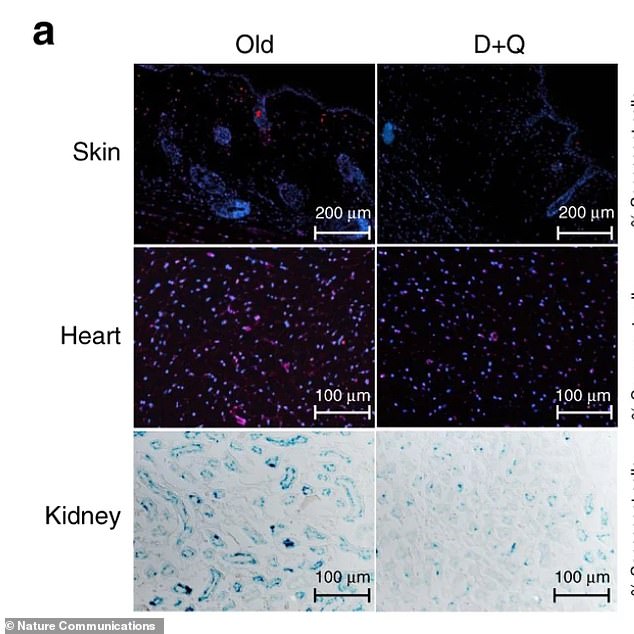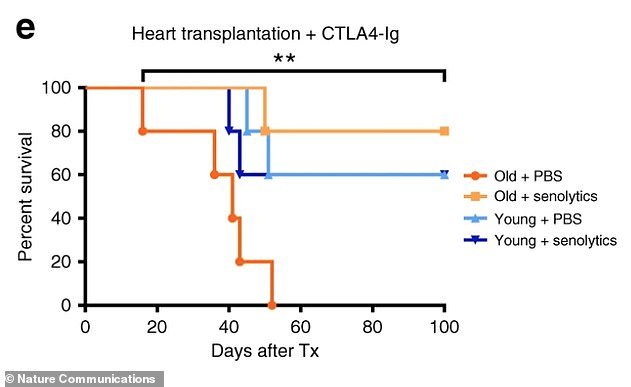Учёные нашли способ омолаживать органы для пересадки от пожилых доноров
Специалисты бостонского госпиталя Brigham & Women’s заявили, что органы пожилых доноров, которые не подходят для пересадки, можно омолодить. Для этого медики предложили использовать медицинские препараты, предназначенные для удаления повреждённых или выработавших свой ресурс клеток.
Благодаря такому подходу можно значительно увеличить количество органов, которые необходимы пациентам с различными тяжёлыми недугами, пишет Daily Mail.
До сих пор эта проблема остаётся актуальной, так как врачи нередко отказываются от донорских органов, которые можно получить от умерших пожилых пациентов, даже если те завещали отдать их для пересадки. Объяснение простое: клетки органов старые, велик риск отторжения, да и без него такие почки, сердце, печень долго не прослужат.
Только в США, согласно данным национального трансплантационного фонда, в очереди на пересадку внутренних органов числится около 114 тысяч человек. При этом каждый день порядка 20 пациентов - или 7,3 тысячи человек в год - умирают, так и не дождавшихся своей очереди.
Предложенная специалистами технология омоложения органов поможет решить эту проблему. Особенно актуально это на фоне всеобщего старения населения планеты: с годами по всему миру проблема нехватки донорских органов будет только усиливаться. Даже выращивание органов «с нуля» из стволовых клеток пока не может закрыть такую потребность.
Применение антивозрастных препаратов позволит омолаживать донорские органы. После этого их можно будет успешно использовать для пересадки, уверены учёные.
https://www.dailymail.co.uk/health/article-8670941/Organs-elderly-donors-rejuvenated-getting-rid-cells-increase-inflammation.html Organs from elderly donors could be 'rejuvenated' with drugs that get rid of older damaged cells - and lead to more transplants, study suggests More than 114,000 Americans are on transplant waiting lists with about 20 people dying every day Despite the lack of organs available for patients on transplant waitlists, organs from older, deceased donors are frequently thrown away. But a new study suggests organs from elderly donors can be 'rejuvenated' by making them 'younger.' Researchers say anti-aging drugs can 'turn back the clock' on hearts, livers, kidneys and lungs by getting rid of cells that are linked to organ rejection in transplant patients. As organs age, senescent cells tend to accumulate, which release cell-free mitochondrial DNA, which activates an inflammatory reaction and is linked to organ rejection in transplant patients (file image) 'Older organs are available and have the potential to contribute to mitigating the current demand for organ transplantation,' said corresponding author Dr Stefan Tullius, chief of the Division of Transplant Surgery at the Brigham. 'If we can utilize older organs in a safe way with outcomes that are comparable, we will take a substantial step forward for helping patients.' About 114,000 people are currently waiting for transplants in the US, according to the American Transplant Foundation. On average, 20 people die every day - or 7,300 per year - waiting for a transplant, often because it is too late by the time a suitable organ becomes available found. Making older orgasn viable could help close the gap between supply and demand. There is no defined cutoff age for donating organs, those of older people tend to induce stronger inflammatory immune response than younger people. This puts patients at greater risk of organ rejection and life-threatening side effects, including death. But, in new research published in the journal Nature Communications, the team demonstrated the effect of a class of drugs called senolytics, which target and eliminate old cells. As organs age, a group of cells called senescent cells tend to accumulate. Because they no longer divide like younger cells do, the body doesn't go about destroying them. What's more, senescent cells release cell-free mitochondrial DNA (mt-DNA), which is recognized by the immune system and activates an inflammatory reaction. Studies in the past have linked this process to organ rejection. But using senolytic drugs will force senescent cells back into a regular cycle so they can split and the body will get rid of them. The researchers tested this theory in old mice with a combination of the senolytic drugs dasatinib and quercetin. Result showed that in greatly reduced mt-DNA levels in rodents' skin and hearts as well levels of pro-inflammatory cells. Mice recipients of transplanted hearts from old donors treated with the drugs had comparable survival rates to those who received hearts from young mice (above) Next. they compared the effects of an actual transplant. They found that mice recipients of transplanted hearts from old donors that had been treated with the drugs had comparable survival rates to those who received hearts from young donor mice. What's more, 80 percent of donors hearts survived the 100-day observation period while organs from old untreated donors stopped working an average of 37 days later. Tullius said further tests are needed to see if the same is found in human organs from older donors. He hopes the drugs organs can be effectively with senolytic drugs after they are harvested from a donor. 'We have not yet tested the effects clinically, but we are well prepared to take the next step toward clinical application by using a perfusion device to flow senolytic drugs over organs and measure whether or not there are improvements in levels of senescent cells,' he said. 'Our data provide a rationale for considering clinical trials treating donors, organs, and/or recipients with senolytic drugs to optimize the use of organs from older donors. 'The goal is to help to close the gap between organ availability and the needs of the many patients currently on transplant waiting lists.'

